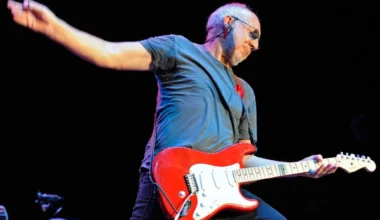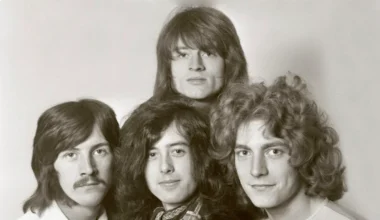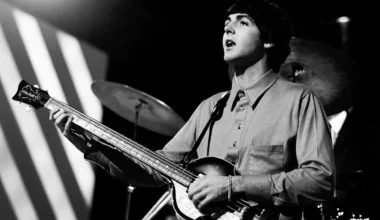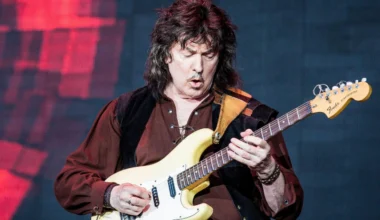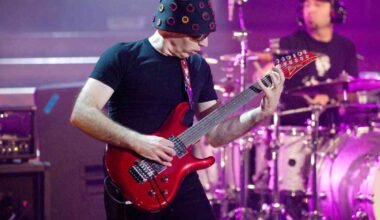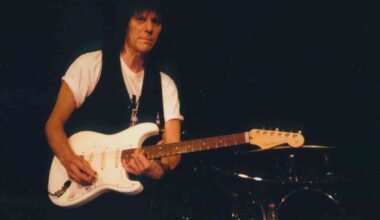The strains of Indian music remained a recurrent thread throughout George Harrison’s life. He may have discovered his career in rock and roll. But his heart was always in the sounds of Eastern culture, which he fell in love with when he began working on The Beatles’ second film, Help. George Harrison left his final performance on the sitar for his supergroup, the Traveling Wilburys. Even though he could produce such amazing music on the instrument.
Even for a band comprised entirely of living legends, neither of the band’s albums followed a predetermined format. These were a bunch of rock and roll parents getting together to jam half the time. So the majority of their focus was on finding something they could all enjoy playing, even if it was just 12-bar blues.
That’s not to suggest George Harrison didn’t shine in the group. As much as every band member may have been reserving their greatest material for their solo ventures. Songs like ‘Heading For the Light‘ are the unique charm that Harrison was always known for. He took the principles of his normal rock and roll style and threw different odd chords into the mix.
However, by the time Roy Orbison died, the band had no genuine need to record another album. Never one to pass up a dad joke, The Traveling Wilburys Vol. 3 was a little more meandering than the previous album, with tracks that felt like half-finished concepts or the rare tune needed to keep the good times going.
Out of all the filler on the album, ‘The Devil’s Been Busy‘ is a lovely piece of playful spiritualism. Harrison talks about the devil lurking in the shadows all around the world. Although Harrison had traded in his customary guitar chops for his characteristic slide guitar. The breakdown shows George Harrison playing his guitar solo note-for-note on a sitar.
This was the kind of Indian music that people had missed from his peak, not seen since the blatant Beatles parody ‘When We Was Fab‘. Although Harrison had one more solo album left in him with Brainwashed. He would record his final album with Jeff Lynne and no more Indian instruments.
Make no mistake, Harrison was still influenced by his Indian roots on songs like ‘Marwa Blues‘. However, the remainder of the album is dominated by acoustic guitars, the occasional guitar solo, and his new favorite instrument from the latter half of his career: the ukulele. Even as he creates his final mantra to the world in the album’s concluding seconds, he does not play the Indian instruments himself. Instead, he brings in musician Bickram Ghosh to provide a calm tabla underlying everything.
Harrison may have utilized Indian instruments rarely in the latter stages of his career. Hearing a tabla or a sarangi wasn’t necessary to realize he remained influenced by that style of music. He was always a student of music. By the time he was older, the slide guitar allowed him to communicate. In the same way that Ravi Shankar could when he played sitar.


